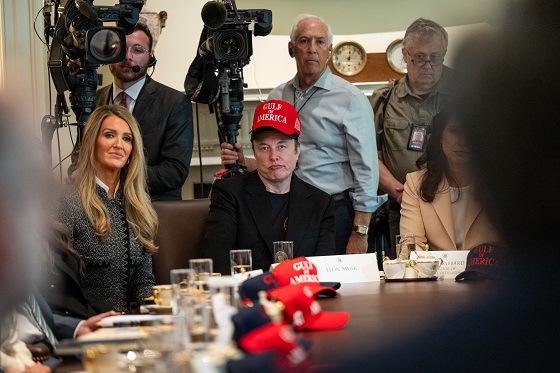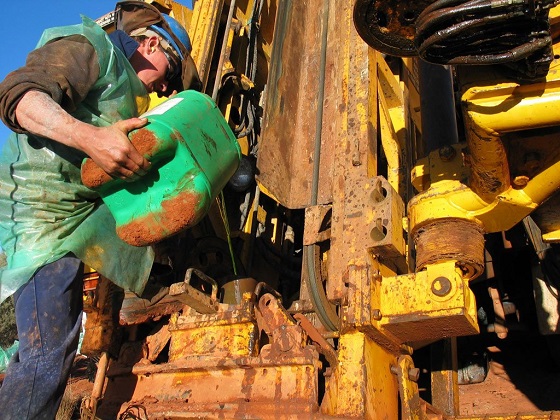Alberta
Update: Rimbey RCMP say missing family has been found and all are safe
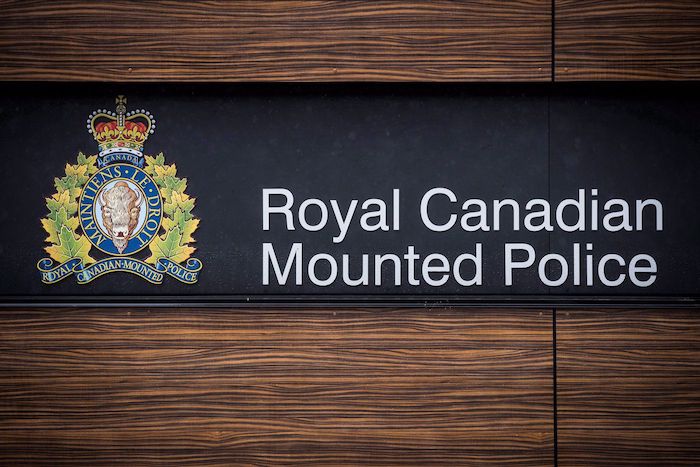
Israel Mani (upper left), Samuel Mani (right), and Gabriel Mani (lower left)
Rimbey RCMP report that all 6 members of the Mani family have been located safe. We would like to thank the public and media for your assistance.
Please advised that due to privacy concerns RCMP are unable to comment on where the family members were located.
—
From April 9
News release from Rimbey RCMP
Rimbey RCMP request the public’s assistance with locating the Mani family. The family of six consisting of 39-year-old Winnie, 24-year-old Liliane, 18-year-old Debra, 15-year-old Israel, 14-year-old Samuel and 13-year-old Gabriel were last living in the area of Meridian Beach in Ponoka County.
Winnie last spoke with family over the phone on April 3, 2024, though the whereabouts of her and that of her children hasn’t been confirmed since mid March 2024.
On March 28, 2024, the Calgary Police Service notified the Rimbey RCMP of a 2013 Black Dodge Durango, registered to Winnie Mani was located March 24, 2024. The vehicle was abandoned in a private parking lot in south east Calgary near the Bow Habitat Station.
Rimbey RCMP are concerned for the families well-being and are asking for the public’s assistance. RCMP believe that the Mani’s may be in southern British Columbia.
If you have been in contact with the Mani family, or have information on their whereabouts, please contact the please contact Rimbey RCMP at 403-843-2224. If you wish to remain anonymous, you can contact Crime Stoppers at 1-800-222-8477 (TIPS), online at www.P3Tips.com or by using the “P3 Tips” app available through the Apple App or Google Play Store. To report crime online, or for access to RCMP news and information, download the Alberta RCMP app through Apple or Google Play.
Alberta
Alberta’s oil bankrolls Canada’s public services

This article supplied by Troy Media.
 By Perry Kinkaide and Bill Jones
By Perry Kinkaide and Bill Jones
It’s time Canadians admitted Alberta’s oilpatch pays the bills. Other provinces just cash the cheques
When Canadians grumble about Alberta’s energy ambitions—labelling the province greedy for wanting to pump more oil—few stop to ask how much
money from each barrel ends up owing to them?
The irony is staggering. The very provinces rallying for green purity are cashing cheques underwritten not just by Alberta, but indirectly by the United States, which purchases more than 95 per cent of Alberta’s oil and gas, paid in U.S. dollars.
That revenue doesn’t stop at the Rockies. It flows straight to Ottawa, funding equalization programs (which redistribute federal tax revenue to help less wealthy provinces), national infrastructure and federal services that benefit the rest of the country.
This isn’t political rhetoric. It’s economic fact. Before the Leduc oil discovery in 1947, Alberta received about $3 to $5 billion (in today’s dollars) in federal support. Since then, it has paid back more than $500 billion. A $5-billion investment that returned 100 times more is the kind of deal that would send Bay Street into a frenzy.
Alberta’s oilpatch includes a massive industry of energy companies, refineries and pipeline networks that produce and export oil and gas, mostly to the U.S. Each barrel of oil generates roughly $14 in federal revenue through corporate taxes, personal income taxes, GST and additional fiscal capacity that boosts equalization transfers. Multiply that by more than 3.7 million barrels of oil (plus 8.6 billion cubic feet of natural gas) exported daily, and it’s clear Alberta underwrites much of the country’s prosperity.
Yet many Canadians seem unwilling to acknowledge where their prosperity comes from. There’s a growing disconnect between how goods are consumed and how they’re produced. People forget that gasoline comes from oil wells, electricity from power plants and phones from mining. Urban slogans like “Ban Fossil Fuels” rarely engage with the infrastructure and fiscal reality that keeps the country running.
Take Prince Edward Island, for example. From 1957 to 2023, it received $19.8 billion in equalization payments and contributed just $2 billion in taxes—a net gain of $17.8 billion.
Quebec tells a similar story. In 2023 alone, it received more than $14 billion in equalization payments, while continuing to run balanced or surplus budgets. From 1961 to 2023, Quebec received more than $200 billion in equalization payments, much of it funded by revenue from Alberta’s oil industry..
To be clear, not all federal transfers are equalization. Provinces also receive funding through national programs such as the Canada Health Transfer and
Canada Social Transfer. But equalization is the one most directly tied to the relative strength of provincial economies, and Alberta’s wealth has long driven that system.
By contrast to the have-not provinces, Alberta’s contribution has been extraordinary—an estimated 11.6 per cent annualized return on the federal
support it once received. Each Canadian receives about $485 per year from Alberta-generated oil revenues alone. Alberta is not the problem—it’s the
foundation of a prosperous Canada.
Still, when Alberta questions equalization or federal energy policy, critics cry foul. Premier Danielle Smith is not wrong to challenge a system in which the province footing the bill is the one most often criticized.
Yes, the oilpatch has flaws. Climate change is real. And many oil profits flow to shareholders abroad. But dismantling Alberta’s oil industry tomorrow wouldn’t stop climate change—it would only unravel the fiscal framework that sustains Canada.
The future must balance ambition with reality. Cleaner energy is essential, but not at the expense of biting the hand that feeds us.
And here’s the kicker: Donald Trump has long claimed the U.S. doesn’t need Canada’s products and therefore subsidizes Canada. Many Canadians scoffed.
But look at the flow of U.S. dollars into Alberta’s oilpatch—dollars that then bankroll Canada’s federal budget—and maybe, for once, he has a point.
It’s time to stop denying where Canada’s wealth comes from. Alberta isn’t the problem. It’s central to the country’s prosperity and unity.
Dr. Perry Kinkaide is a visionary leader and change agent. Since retiring in 2001, he has served as an advisor and director for various organizations and founded the Alberta Council of Technologies Society in 2005. Previously, he held leadership roles at KPMG Consulting and the Alberta Government. He holds a BA from Colgate University and an MSc and PhD in Brain Research from the University of Alberta.
Troy Media empowers Canadian community news outlets by providing independent, insightful analysis and commentary. Our mission is to support local media in helping Canadians stay informed and engaged by delivering reliable content that strengthens community connections and deepens understanding across the country.
Alberta
Alberta’s industrial carbon tax freeze is a good first step
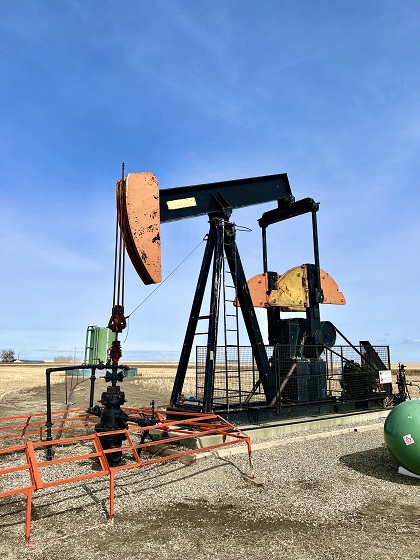
 By Gage Haubrich
By Gage Haubrich
The Canadian Taxpayers Federation is applauding Alberta Premier Danielle Smith’s decision to freeze the province’s industrial carbon tax.
“Smith is right to freeze the cost of Alberta’s hidden industrial carbon tax that increases the cost of everything,” said Gage Haubrich, CTF Prairie Director. “This move is a no-brainer to make Alberta more competitive, save taxpayers money and protect jobs.”
Smith announced the Alberta government will be freezing the rate of its industrial carbon tax at $95 per tonne.
The federal government set the rate of the consumer carbon tax to zero on April 1. However, it still imposes a requirement for an industrial carbon tax.
Prime Minister Mark Carney said he would “improve and tighten” the industrial carbon tax.
The industrial carbon tax currently costs businesses $95 per tonne of emissions. It is set to increase to $170 per tonne by 2030. Carney has said he would extend the current industrial carbon tax framework until 2035, meaning the costs could reach $245 a tonne. That’s more than double the current tax.
The Saskatchewan government recently scrapped its industrial carbon tax completely.
Seventy per cent of Canadians said businesses pass most or some industrial carbon tax costs on to consumers, according to a recent Leger poll.
“Smith needs to stand up for Albertans and cancel the industrial carbon tax altogether,” Haubrich said. “Smith deserves credit for freezing Alberta’s industrial carbon tax and she needs to finish the job by scrapping the industrial carbon tax completely.”
-
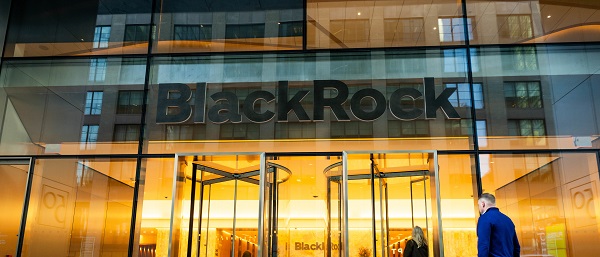
 Business2 days ago
Business2 days agoThe ESG Shell Game Behind The U.S. Plastics Pact
-

 espionage1 day ago
espionage1 day agoPro-Beijing Diaspora Group That Lobbied to Oust O’Toole Now Calls for Poilievre’s Resignation Amid PRC Interference Probes
-
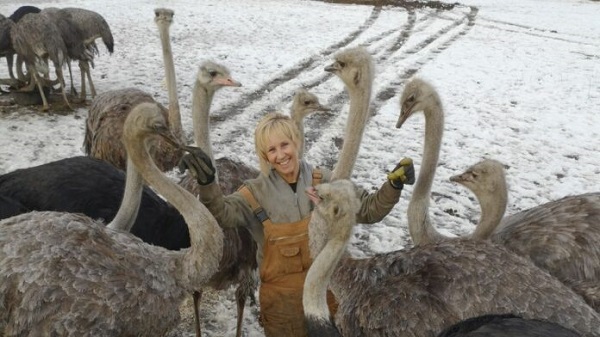
 Agriculture21 hours ago
Agriculture21 hours agoCanada Greenlights Mass Culling of 400 Research Ostriches Despite Full Recovery from Bird Flu Months Ago
-
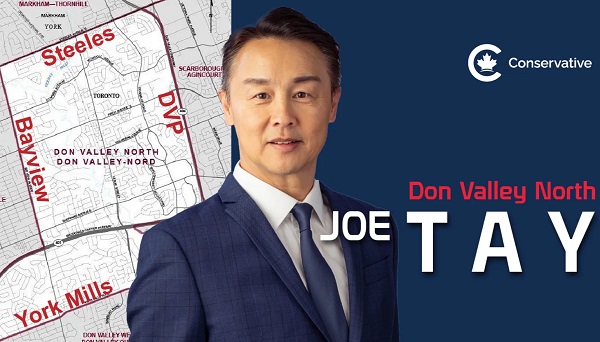
 espionage22 hours ago
espionage22 hours agoOttawa Raises Alarm With Beijing Over Hong Kong Detention of CPC Candidate Joe Tay’s Family
-
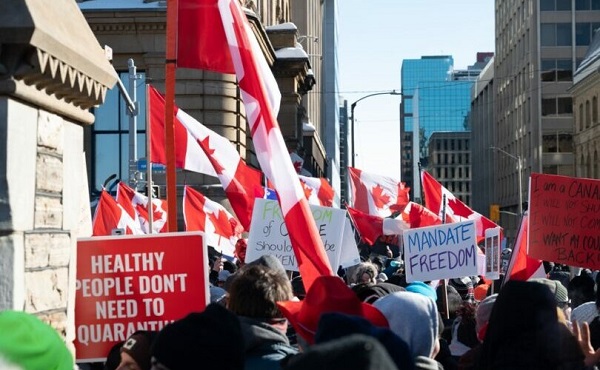
 COVID-192 days ago
COVID-192 days agoFreedom Convoy leader Tamara Lich to face sentencing July 23
-

 International2 days ago
International2 days agoBongino announces FBI will release files on COVID cover up, Mar-a-Lago Raid and more
-
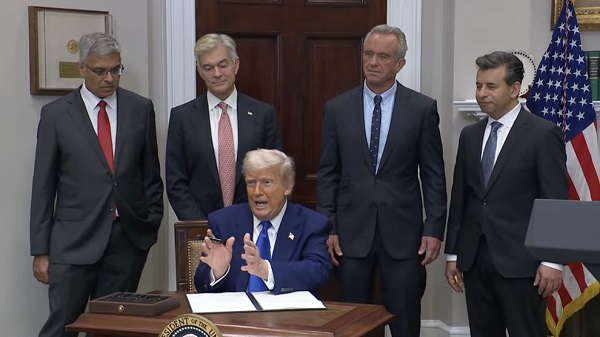
 Health2 days ago
Health2 days agoTrump signs executive order aiming to slash prescription drug costs up to 90%
-

 Addictions9 hours ago
Addictions9 hours agoWhy the U.S. Shouldn’t Copy Canada’s Experiment with Free Drugs
